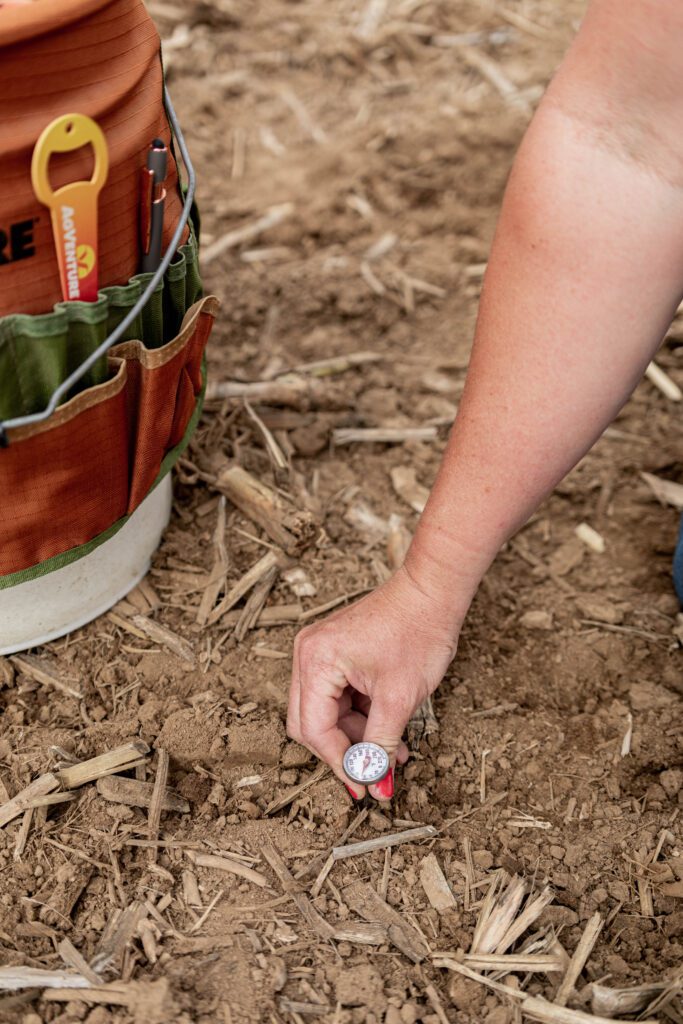
When is the right time to start planting corn? The farmer’s almanac says to plant corn in the first quarter after the new moon. And, of course, farmers are itching to get in the fields that first 50°F spring day. Comparing almanac predictions with your corn planting dates may be interesting, but today’s on-farm research tells us soil temperature is the more significant factor for good corn emergence.
Agronomists agree that three key factors affect your corn’s emergence: genetics, seed quality, and environment. As a farmer, you can control the quality of the hybrid and genetics you select, but mother nature controls your planting dates.
What You Should Know
Corn’s optimal growth condition is in soil temperatures between 85 to 90°F. However, the reality of early planting often exposes corn to colder soil temperatures. Research shows that corn should be planted at 50°F or higher to avoid significant stress on emergence and seedling health.
The warm temperature score can be found on the seed tag. The AgVenture seed quality testing program also collects the cold germination score, which is not found on the seed tag. The cold germination score shows how the seed performs in cold temperatures in wet soil.
Corn seeds are highly susceptible to cold stress during the imbibition phase (water absorption). This vulnerability is exacerbated when planting is done just before a cold weather event, such as frost or snowfall, potentially leading to reduced crop stands.
Soil types can impact corn emergence. You might be able to plant earlier because sandy soils are dryer, but lighter soils can experience wider temperature fluctuations, especially on cold, clear nights, adding extra stress to seedlings.
High residue levels in strip-till fields can further impede the warming process, delaying the accumulation of growing degree units (GDUs) necessary for corn emergence. Field studies showed a 20°F difference between low vs. high residue levels in the same field.
Action Steps
- Select stress-tolerant hybrids and seed treatments: Plant AgVenture brand hybrids known for higher stress emergence scores to reduce the risk of stand loss due to cold soil temperatures, especially in the Northern Corn Belt. AgVenture’s advanced seed treatment technology supports the establishment of healthy, uniform crops, boosting productivity.
- Ask your AgVenture Yield Specialist for the cold germination score and look for test scores 85% or higher.
- Regular soil temperature checks: Before planting, ensure soil temperatures are above 50°F.
- Check the weather forecast: If cold conditions are forecasted, stop planting 1-2 days before the cold front hits to allow seeds to begin hydration in warmer soils.
- Adjust planting times based on soil types: Large temperature fluctuations can hurt emergence in sandy fields. In high-residue fields, consider practices like strip-tillage to promote faster soil warming. Using row cleaners can also be beneficial in managing residue effectively.
Successful corn emergence relies on strong genetics, seed quality, and paying attention to oil temperature and weather conditions. While advancements in hybrid genetics and seed technology have provided farmers with robust tools to combat early-season stress, soil temperature remains the determining factor for healthy corn plant emergence.